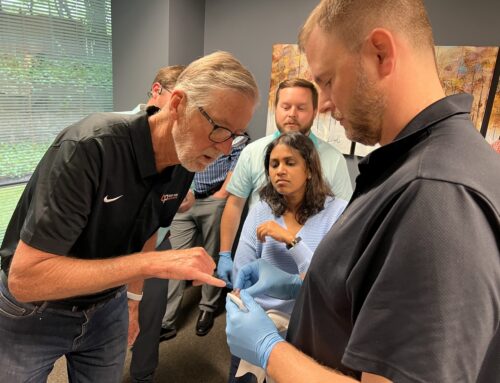Tinnitus is often referred to as “ringing of the ears,” and can be one of the less common symptoms of TMJ disorders. Many patients suffering from temporomandibular joint disorder (TMD) with coexisting tinnitus find that TMD therapy often helps to improve or resolve their tinnitus in conjunction with their TMD symptoms. Let’s take a closer look at the relationship between TMD and tinnitus so you can help provide proper treatment to your patients.
The Relationship
There is a close relationship between certain problems with the TMJ and tinnitus. Some scientific studies even show that people with problems with their TMJ are more likely to suffer from tinnitus, while some individuals who have sustained an injury to their neck may also suffer from tinnitus. If your patient suffers from TMD or neck problems, he or she may find that they can alter the intensity of their tinnitus by moving their mouth, jaw, face and neck.
Tell Me More…
The chewing muscles are near some of the muscles that insert into the middle ear. This, in return, may have an effect on hearing, which promotes tinnitus. There is also a direct connection between the ligaments hat attach to the jaw and one of the hearing bones that sits in the middle ear. Through the nerve supply from the TMJ, a connection has been shown with the parts of the brain that are involved with both hearing and the interpretation of sound. The general discomfort associated with TMJ problems can also aggravate any pre-existing tinnitus.
Treatment
By learning more about TMD and how it relates to tinnitus, you can provide your patients with further treatment options. There are a variety of treatment options currently available to help improve TMD symptoms, as well as symptoms of tinnitus. If you would like to learn more about tinnitus and TMD, feel free to contact my office or to attend one of the upcoming fall seminars!





